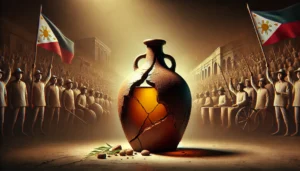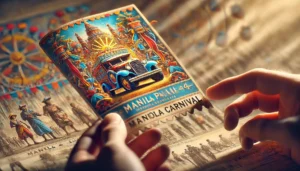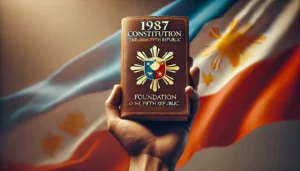
Comfort Women: Victims of Wartime Sexual Slavery
The comfort women system emerged during World War II, primarily under the Japanese Empire. This system of sexual slavery was established to serve the Japanese Imperial Army. The term “comfort women” is a euphemism for women and girls forced into sexual slavery by the Imperial Japanese Army before and during World War II. Establishment and […]
Read More
The Mount Pinatubo Eruption: A Natural Disaster and its Aftermath
The Sleeping Giant Awakens Mount Pinatubo, a seemingly dormant volcano located on the island of Luzon in the Philippines, had been silent for centuries. However, in June 1991, this sleeping giant awakened with a fury that would reshape the landscape and impact global climate patterns for years to come. The eruption of Mount Pinatubo stands […]
Read More
The Fall of Bataan and Corregidor: A Turning Point in the War
The Pacific Theater of World War II was a vast and complex battleground that stretched across the world’s largest ocean. The Rise of Imperial Japan in the early 20th century set the stage for conflict with Western powers, particularly the United States. Japan’s expansionist policies and its quest for resources led to increasing tensions in […]
Read More
The Basi Revolt: An Uprising Over Sugar Wine
The Basi Revolt, also known as the Ambaristo Revolt, stands as a significant yet often overlooked chapter in Philippine history. This uprising, which took place in 1807, illuminates the complex relationship between colonial powers and indigenous populations, particularly concerning local traditions and economic policies. The revolt centered around basi, a fermented alcoholic beverage made from […]
Read More
The Development of Philippine Education: Challenges and Achievements
Historical Context of Philippine Education Pre-Colonial EraThe Philippines’ educational journey began long before the arrival of Western colonizers. In pre-colonial times, education was informal and focused on practical skills necessary for daily life. Parents and tribal elders were the primary educators, passing down traditions, values, and survival skills to younger generations. This system, while not […]
Read More
Filipino Music: From Kundiman to Modern Pop
Filipino music has a rich and diverse history that spans centuries, reflecting the country’s complex cultural tapestry. Pre-colonial era music was deeply rooted in indigenous traditions, with each ethnic group developing its own unique musical styles and instruments. These early forms of music were often tied to rituals, celebrations, and daily life activities. The use […]
Read More
The Hukbalahap Rebellion: Post-War Struggle for Land Reform
The roots of the Hukbalahap Rebellion can be traced back to the agrarian unrest that plagued the Philippines in the pre-World War II era. The Philippine countryside, particularly in Central Luzon, was characterized by a feudal-like system where a small number of wealthy landowners controlled vast tracts of land. This system, known as hacienda, left […]
Read More
The Manila Carnival: A Showcase of Colonial Culture
The Manila Carnival, a grand annual festival held in the Philippines during the American colonial period, stands as a testament to the complex cultural interplay between the colonizer and the colonized. Inception and Inspiration The carnival’s roots can be traced back to 1908 when William Cameron Forbes, the American Governor-General of the Philippines, sought to […]
Read More
The Rise of Christianity: Conversion and Cultural Impact
Christianity, one of the world’s largest religions, traces its roots to the life and teachings of Jesus Christ in the 1st century CE. Born in Bethlehem and raised in Nazareth, Jesus began his ministry around the age of 30, preaching a message of love, forgiveness, and salvation. His followers believed him to be the long-awaited […]
Read More
The 1987 Constitution: The Foundation of the Fifth Republic
The 1987 Constitution of the Philippines, also known as the “Freedom Constitution,” emerged from a turbulent period in Philippine history. It was drafted and ratified following the People Power Revolution of 1986, which ousted Ferdinand Marcos and ended his two-decade rule. This historic document laid the groundwork for the Fifth Republic of the Philippines, marking […]
Read More